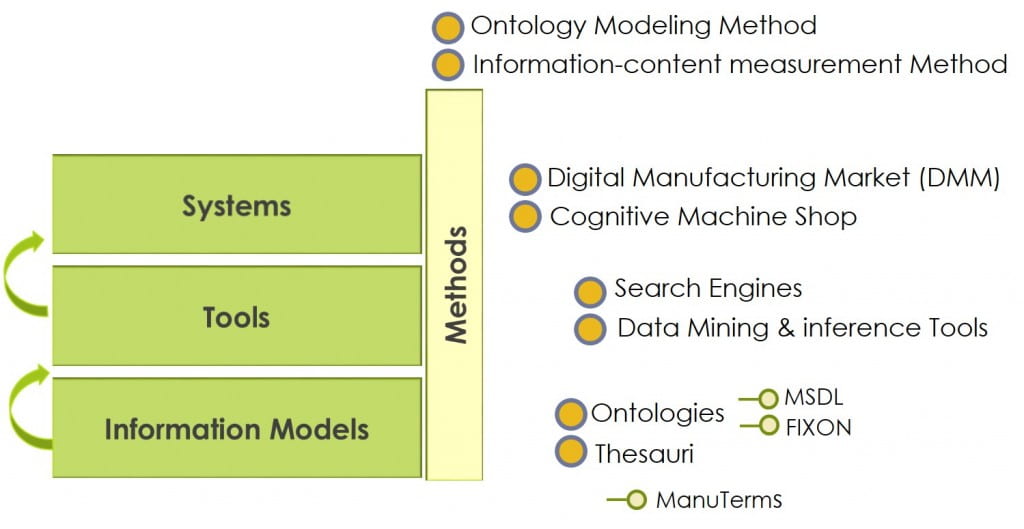What is Engineering Informatics?
The term “informatics” broadly describes the study and practice of creating, storing, finding, manipulating and sharing information. Engineering Informatics is an engineering discipline that focuses on application of advanced computing, information and communication technology, artificial intelligence, data analytics and cognitive science in the engineering domain. In particular, the focus of Engineering Informatics (INFONEER) Research Group at Texas State University is on conducting research in explicit knowledge representation, organization, and reuse in support of knowledge-intensive and cyber-enabled design and manufacturing. We develop ontologies, tools, and systems (and their corresponding methodologies) for formal knowledge acquisition, organization, and synthesis with the objective of improving the intelligence and interoperability in design and manufacturing systems.
We call ourselves Knowledge Engineers. Knowledge engineering is a branch of artificial intelligence (AI) that is concerned with building knowledge-based systems (KBS). One of the core focuses of researchers at INFONEER is development of formal ontologies that are used as the semantic backbone of knowledge graphs (KG).
From a methodological standpoint, we work in the following areas:
- Ontology Engineering
- Knowledge Representation and Modeling
- Knowledge Graphs (KG) and Graph-native Machine Learning (GN-ML)
- Machine Learning (ML) and Artificial Intelligence (AI)
- Natural Language Processing (NLP)
- Robust Optimization
- Systems Engineering
- Decision Theory
- Design Theory and Methodology
- Information Theory
From an applicability standpoint, we work in the following areas:
- Supply Chain Automation
- Manufacturing Diagnostics & Prognostics
- Industrial Maintenance
- Design and Manufacturing Automation
- Cyberphysical Manufacturing Systems
- Smart Manufacturing/Industry 4.0
- Product Design and Development
- Traceability in Agri-food Supply Chains
Research Objectives:
The major objectives of the INFONEER Research Group are:
Objective 1: Enabling intelligent and data-driven decision making in distributed design and manufacturing through developing decision support tools, methods, information models.
Objective 2: Enabling distributed and cyber-enabled design and manufacturing through developing tools, methods, and systems for horizontal collaboration.
Objective 3: Enabling autonomous design-to-fabrication in automated manufacturing systems through developing solutions supported by engineering ontologies.
Objective 4: Improving the performance of machine learning techniques through semantic enrichment, integration, and harmonization of data. 
farhad ameri farhad ameri farhad ameri farhad ameri farhad ameri farhad ameri
